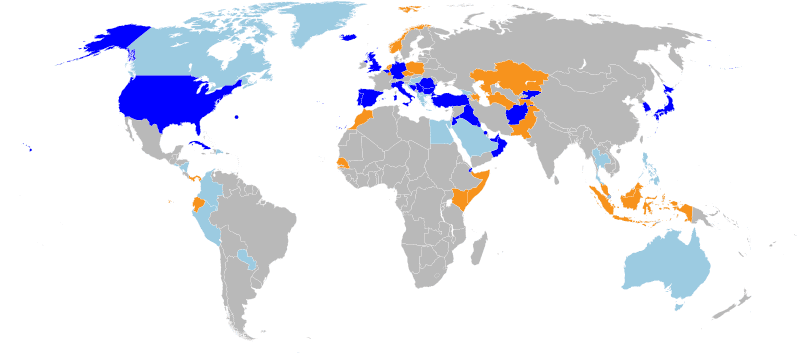Hegemonists Need a Bogeyman

Andrew Bacevich skewers Robert Kagan’s recent essay about “resurgent authoritarianism” that I commented on earlier:
First, please note that “The Strongmen Strike Back” dusts off and repackages a line of argument made by Kagan and other neoconservatives after 9/11 to promote a Global War on Terrorism. What we have here is bad whisky sporting a new label. Perhaps readers are not supposed to notice, but at least some will recall the disastrous consequences that ensued when Kagan last demanded concerted action to purge the world of evil.
Second, Kagan’s insistence on assigning a common label to the regimes of Vladimir Putin, Xi Jinping, Nicolas Maduro, Mohammed bin Salman, Abdel Fattah el-Sisi, et al‚—suggesting that they are devoted to a common cause and subscribe to a common worldview—is sheer nonsense. Contemporary authoritarianism does not derive from or express anything remotely like an ideology. Its origins are as disparate as its manifestations. It is not one thing, but many things.
Everything Bacevich says about the essay is right, and it lines up with many of the points I made in my post from earlier this month. Kagan’s essay is an ideological statement and a call to arms to justify an expansive and aggressive U.S. foreign policy. It is not an accurate description of the state of international politics, nor is it a useful analysis of authoritarian regimes, but then it isn’t meant to be either of those things. The point of the essay is not to understand or explain the many different kinds of nationalist and authoritarian populism that are cropping up around the world, but to use them as a bogey to frighten people into subscribing to confrontational policies in several regions around the world. Kagan’s crusading ideology requires a grand enemy to crusade against, and when there isn’t one available it has to be cobbled together from whatever happens to be available.
Earlier this year, Damir Marusic carefully picked apart Kagan’s ideas for expansive, aggressive foreign policy in his excellent review of The Jungle Grows Back:
And so the book ends up in much the same place as every other liberal world order sermon: The ideological struggle of our time is between the forces of light (the liberal followers of Enlightenment principles) and the forces of darkness (the obscurantist reactionaries to that tradition). Americans, the purest children of the Enlightenment, may think the struggle has long ago been won, but they are wrong—as wrong as the naifs who refused to confront illiberalism in the 1930s.
As I said back in January, “Hegemonists like Kagan need a big enemy to justify the incessant meddling abroad and the exorbitant military budgets that they already support,” and he has conjured up a new monster to destroy with his “resurgent authoritarianism” thesis. Hegemonists need a bogeyman, and Kagan has given himself the task of inventing it.
Michael Lind recently made the same point as Bacevich about Kagan’s sloppy use of the term authoritarian to apply to a wide range of regimes:
“Authoritarianism” is a political science label slapped on radically different regimes, not a self-description. There were and are self-conscious Marxist-Leninists and Salafist theocrats. But there is no generic “authoritarian” movement and no common “authoritarian” worldview.
By casting too wide a net, Kagan would have the U.S. confront too many states all at once, and by lumping together disparate regimes he ignores the important rivalries and disagreements among them. Like all ideologues, he places far too much importance on the role of ideology in understanding the behavior of other states, and he urges the U.S. to act against its own best interests in the name of promoting an ideological cause. But then Kagan isn’t interested in getting the details right. He is concerned with producing what Bacevich calls “elegant oversimplification” that provides ready-made excuses for an activist and meddling U.S. role in the world. It is not intended to persuade skeptics, but to reassure the believers that they stand at Armageddon and battle for the Lord. Unfortunately for Kagan’s intended audience, the idol they worship is a false one and will continue to fail them.
Comments